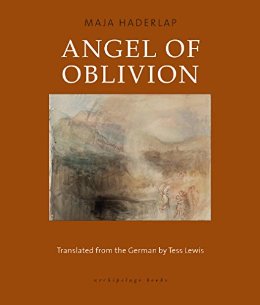Stephanie Jane reviewed Angel of Oblivion by Tess Lewis
Not an easy read
3 stars
Although Angel Of Oblivion is fiction, it reads so much like memoir that it was difficult for me to separate Haderlap herself from our young narrator. I don't know how close this story is to her actual childhood. The book is not an easy read and I often struggled to follow what passes for its storyline. Both the grandmother and the father are psychologically scarred from their wartime experiences and so we frequently jump around in time as memories of the past are triggered. I was reminded of a French book, Brodeck's Report by Philippe Claudel, which also examines the mental damage of the Second World War on survivors of a community where horrific violence took place.
I particularly appreciated Haderlap's poetic writing as she describes the physical appearance of people, farms and the natural world with the isolated valley of our narrator's youth. The destruction and decay of these …
Although Angel Of Oblivion is fiction, it reads so much like memoir that it was difficult for me to separate Haderlap herself from our young narrator. I don't know how close this story is to her actual childhood. The book is not an easy read and I often struggled to follow what passes for its storyline. Both the grandmother and the father are psychologically scarred from their wartime experiences and so we frequently jump around in time as memories of the past are triggered. I was reminded of a French book, Brodeck's Report by Philippe Claudel, which also examines the mental damage of the Second World War on survivors of a community where horrific violence took place.
I particularly appreciated Haderlap's poetic writing as she describes the physical appearance of people, farms and the natural world with the isolated valley of our narrator's youth. The destruction and decay of these homes and communities is heartbreaking to read about and, while I don't think Angel Of Oblivion will be a strongly memorable book in itself, I have found myself repeatedly returning to think about one of its strong themes since I have finished reading. The Slovenian community in Austria, fighting and dying as partisans during the war, were on the 'winning side' yet in later years as an ethnic minority in Austria, a country which generally embraced Nazism, they find their experiences and culture suppressed by the majority population who would prefer not to be reminded of this time in their past.

